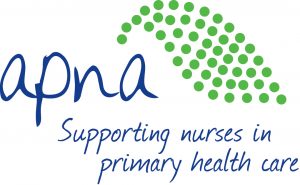Communication and interpreters
Table of contents
Overview
The majority of newly arrived people from refugee backgrounds do not speak English or do not speak English well,1 yet research shows that credentialed, professional interpreters are only engaged for a small percentage of consultations in primary care.2
Healthcare providers have a professional obligation to understand their patients’ needs and patients have the right to fully understand the information provided by healthcare workers. For people who have low English proficiency, working with a credentialed interpreter is the best way to ensure this.
There are ethical, quality and safety issues associated with using family, friends, and non-credentialed staff who speak languages other than English to conduct clinical consultations. Such issues include:
- no certainty of accuracy of medical information conveyed, nor of instructions, dosages or diagnosis
- exposure to confidential information, or information of a sensitive or traumatic nature
- placing undue stress on family relations
- imposing excessive responsibility on children.
Failure to work with credentialed interpreters creates a significant risk of flawed communications, the consequences of which can include ineffective, time consuming or dangerous interventions3 and legal proceedings.4 Optimal communication reduces anxiety as well as facilitating consultation.
Confidentiality is part of a credentialed interpreter’s code of ethics, and the engagement of credentialed professional interpreters form part of the Royal Australian College of General Practitioners Standards for General Practice and the Nursing and Midwifery Board of Australia’s Code of Ethics for Nurses in Australia.5
Credentialing for interpreters and multilingual staff
The National Accreditation Authority for Translators and Interpreters (NAATI) provides credentialing for interpreters. However, credentialing is not available in all languages.6 New, emerging and small language groups may not have accreditation tests. Where credentialing is not available in the language required, healthcare providers should still utilise interpreters employed by the Translating and Interpreting Service (TIS National) or the health services contracted provider. Interpreters contracted by these services adhere to the Australian Institute of Interpreters and Translators (AUSIT) Code of Ethics.7
Code of Ethics and Code of Conduct
Communication of health information is a specialised skill. Multilingual staff who use their language skills while working in various roles in general practice, including doctors, should also have their credentials to communicate information in a language other than English assessed. ‘Bilingual staff who achieved their professional qualification in another language may not require language accreditation to practice their profession in that language.’8
Practices should develop a policy about what information may be communicated in languages other than English for multilingual staff. Some staff may be able to use their skills to communicate low-risk appointment time information. See Centre for Culture Ethnicity and Health, ‘Managing bilingual staff’.
TIS National free interpreting
Private medical practitioners, nurses and other practice staff are eligible to access free interpreting services through TIS National when providing Medicare rebateable services. Pharmacies can also access free interpreting through TIS National when providing medication under the Pharmaceutical Benefits Schedule (PBS). The Doctors’ Priority Line (1300 131 450) gives eligible doctors 24-hour priority access to TIS National phone interpreters.
For more information about TIS National free interpreting service, including how to register, and booking interpreters see TIS National, ‘Frequently Asked Questions’.
Community health services and hospitals
In a community health service or hospital, check existing booking procedures and interpreter access, as arrangements vary from service to service. Make sure all healthcare providers, including non-clinical staff, have access to telephone booking numbers and procedures.
Health literacy and alternate health beliefs
Effective communication requires more than language interpreting and translation. Be mindful that some concepts may not be familiar to a patient. Good communication requires healthcare providers to develop an understanding of the way the patient views the purpose of the consultation, their health condition and measures they take to stay well.
Practice tip: These questions may help healthcare providers assess their patients’ health literacy and develop shared management plans.9
‘What do you think caused this condition?’
‘Have you known people in the past who have had a similar condition?’
‘How did they stay well?’
‘People who have this condition in Australia have found __________ to be helpful, do you think this may help you?’
‘Based on our discussion today, what will you change at home to help manage your condition?’
Approach to care
Interpreter mediated consultations
- Establish if the person has a preferred language, and has a preference for an interpreter of a particular ethnicity or gender. Do this in advance where possible, and note this information on patient files to assist with planning future consultations.
- Endeavour to book the same interpreter, where possible, for appointments with the client. This will help promote rapport, trust, and continuity of care.
- During the consultation:
- Introduce yourself and your patient to the interpreter and briefly explain the nature of the consultation.
- Choose seating arrangements that will allow direct communication with your patient. Face your patient and speak directly to them, rather than speaking to the interpreter.
- Remind the patient, via the interpreter, of the interpreter’s code of ethics and confidentiality
- Ideally the consultation room should be equipped with a hands-free speaker telephone or two handsets to allow for working with telephone interpreters.
All health services should be able to engage a professional interpreter when necessary, and should have procedures in place to identify when someone may require an interpreter.
For more information about developing policies and procedures to address the needs of patients with limited English proficiency see Centre for Culture, Ethnicity and Health, ‘Developing a comprehensive language services response’.
Practice tip: The Doctors’ Priority Line is available 24 hours a day, 7 days a week on 1300 131 450. This number will take you to the front of the TIS National queue. TIS is also available free of charge for pharmacists, but at the time of writing TIS services are not available free of charge for allied health staff delivering MBS rebateable services.
Practice tip: When a patient calls and is having trouble communicating, ask for their name, phone number and preferred language and tell them you will call them back with an interpreter, then call the TIS Doctors’ Priority Line on 1300 131 450. Once the interpreter has been engaged, ask the operator to call the person back on the number provided.
Practice tip: Translated health information and appointment reminder cards can be useful to ensure patient understanding of health issues, including diagnosis, treatment and management. However, consider a person’s literacy in their first language. It is always good to use multiple modes of communication: verbal, pictorial and written. See Resources.
Practice tip: Teach-Back is a way of checking a patient’s understanding of a medical issue, diagnosis, treatment plan or health education message. It involves asking a patient (or family member) to explain – in their own words – what they need to know or do to check that the person has understood what the healthcare provider has said.
Practice tip: Multilingual reception staff may be an asset to a practice, particularly if you have a staff member from a background similar to the community seen at the practice. This can assist with basic communication about appointment times and contact details, etc.
Practice tip: On all referrals made to other services, include a note that an interpreter is required and the patient’s preferred language (including dialect) and other languages that they speak. Similarly, include a place for ‘interpreter required’ and ‘language spoken’ to be noted on your practice’s referral form.
Considerations
- A telephone interpreter may be preferred by your patient for confidentiality reasons, especially if they are from a small community or language group.
- If your patient is concerned about confidentiality, you can withhold their name from the interpreting service, offer to call them by another name during the consultation, and/or request an interpreter from another state where possible.
- Communication with patients from refugee backgrounds may also be affected by cultural differences and their experiences of torture or other traumatic events. See Approach to consultation and management.
Resources
- For a comprehensive guide to accessing and using TIS National for health professionals in private practice, including flow charts for clinical and non-clinical staff, see Working with patients when there are language barriers, North Western Melbourne Primary Health Network.
- Doctors’ Priority Line three minute instructional clip
- Hints and tips for working with interpreters, TIS National
- Each state and territory has private interpreter services, available in addition to the TIS National services. See State and territory referrals.
- Using Teach-Back via an interpreter, Centre for Culture, Ethnicity and Health
- Ethnologue online encyclopaedia of world languages
- Doctor’s Priority Line, DSS factsheet
References
- Department of Immigration and Border Protection. Settlement Reporting Facility. Australian Humanitarian Program Entrants 2012-2016 Calendar years, 2017.
- Bayram C, Ryan R, Harrison C, et al. Consultations conducted in languages other than English in Australian general practice. Australian family physician. 2016;45(1/2):9.
- Vanstone R SJ, Casey S, Maloney M, Duell-Piening P. Melbourne Promoting the Engagement of Interpreters in Victorian Health Services. Brunswick, Victoria: Victorian Foundation for Survivors of Torture (Foundation House); 2013.
- Bird S. Failure to use an interpreter. Australian Family Physician. 2010;39(4):241.
- Australia Nursing and Midwifery Board. Code of Ethics for Nurses in Australia: Australian Nursing and Midwifery Council, Australian College of Nursing; 2008.
- National Accreditation Authority for Translators and Interpreters (NAATI). Available Accreditation Tests: National Accreditation Authority for Translators and Interpreters (NAATI); 2017.
- Australian Institute of Interpreters and Translators (AUSIT). Ethics and conduct. 2018; ausit.org/AUSIT/About/Ethics___Conduct/AUSIT/About/Ethics_and_Conduct.aspx. Accessed 07/02, 2018.
- Department of Health and Human Services. Language services policy and guidelines. Victorian Government, 2017.
- Kleinman. Appendix 2: Kleinman’s Explanatory Model of Illness. In: Hark L, DeLisser H. Achieving Cultural Competency: Wiley-Blackwell; 2009.




